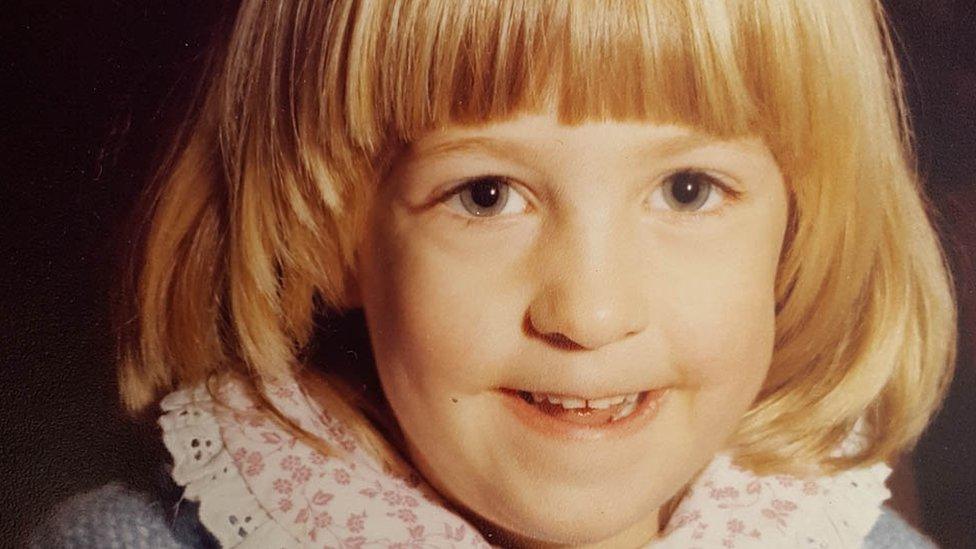Cardiff man given 'life sentence by back door' for phone theft
- Published
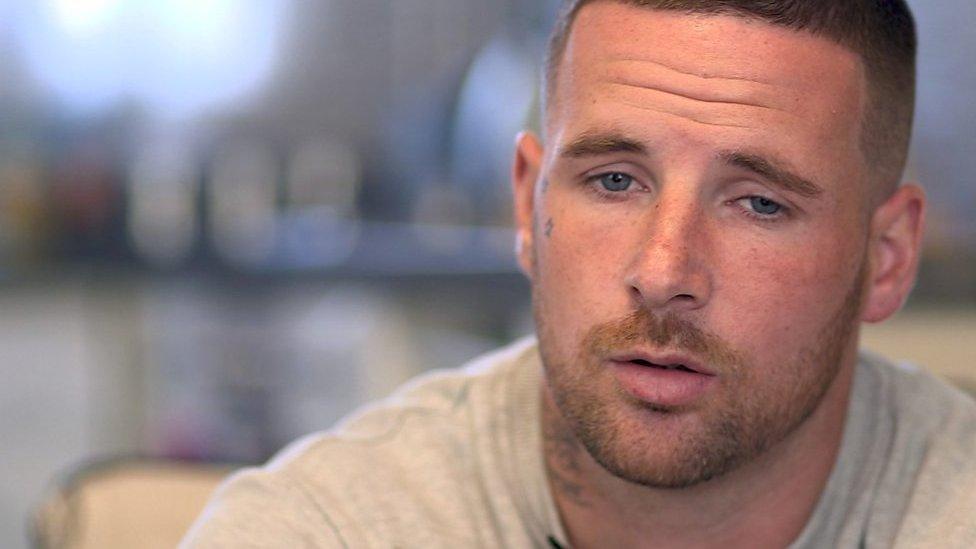
Shaun Lloyd served three times his minimum jail term after being given an IPP sentence
A woman who says her son was effectively given "a life sentence" for stealing a mobile phone is calling on the UK government to change the rules.
Shaun Lloyd was jailed for two years, nine months but ended up serving three times that because he was given an imprisonment for public protection sentence (IPP).
He is now out of prison but he can be recalled at any time.
The Ministry of Justice said the power to recall "is vital".
IPPs were scrapped in 2012. But that was not applied retrospectively to the 4,500 prisoners still serving them.
Mr Lloyd's mother Shirley Debono wants that changed so IPP prisoners can get on with their lives without fearing perpetual recall, adding that it meant her son was given a "life sentence by the back door".
Aged 18, Mr Lloyd, from Cardiff, pushed someone to the floor and took their mobile in November 2005.
When chased he stopped and returned the phone. The victim called the police and he was sentenced for robbery in 2006.
IPPs allowed the parole board to keep prisoners inside as long as they saw fit and it meant Mr Lloyd served three times his sentence.
"These IPP prisoners are seeing people coming into prison who've committed the same crime, or a worse crime than them, and getting out after a year or two years, but they're stuck inside festering away," Ms Debono said.
IPPs were introduced in 2005 for violent and sexual offenders.
More than a third were given to less serious offenders, jailed for two years or less.
His mother said she does not condone what Shaun did, and he "deserved that two years, nine months".
"But the judge added a new sentence, the indeterminate sentence for the protection of the public, known as the IPP," she added.
"So Shaun went to prison. And it wasn't until he done two years, nine months and didn't get out that we started to panic."
Offenders are on life licence meaning they can be recalled to prison for any breach.
Mr Lloyd was released in 2014. After two-and-a-half years he was recalled for 10 months for using heroin.
A year after being released the same thing happened. He was recalled and served 11 months.
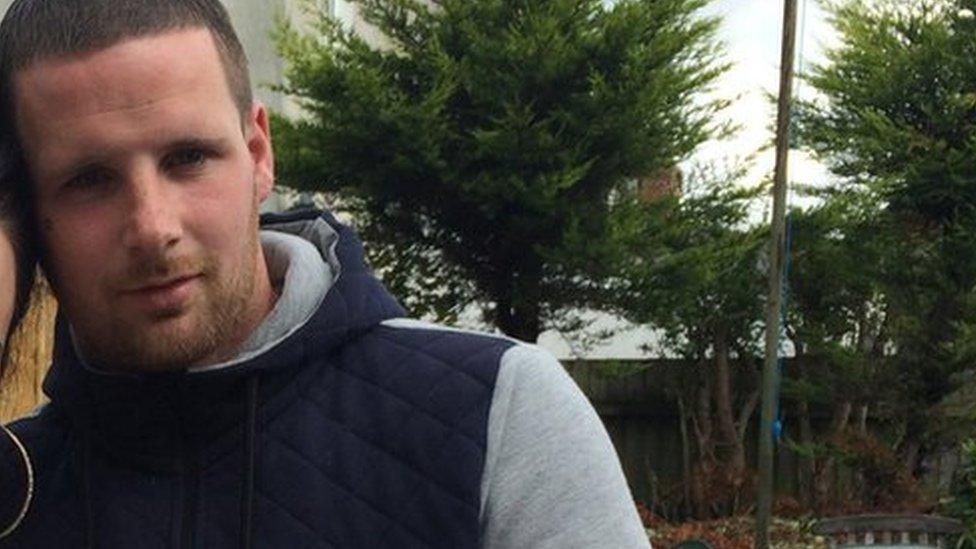
Mr Lloyd was released in December 2019, but with an IPP sentence is on licence for life
He was released again in December 2019, but because of IPP he is still on licence for life.
But Ms Debono wants that changed.
The 60-year-old said self harm and suicide rates among IPP prisoners were higher than the general prison population.
On realising her son had been handed "a life sentence through the back door" she began campaigning to get him freed.
That has included meeting Lord Blunkett, the former Home Secretary who says he now regrets introducing IPPs.
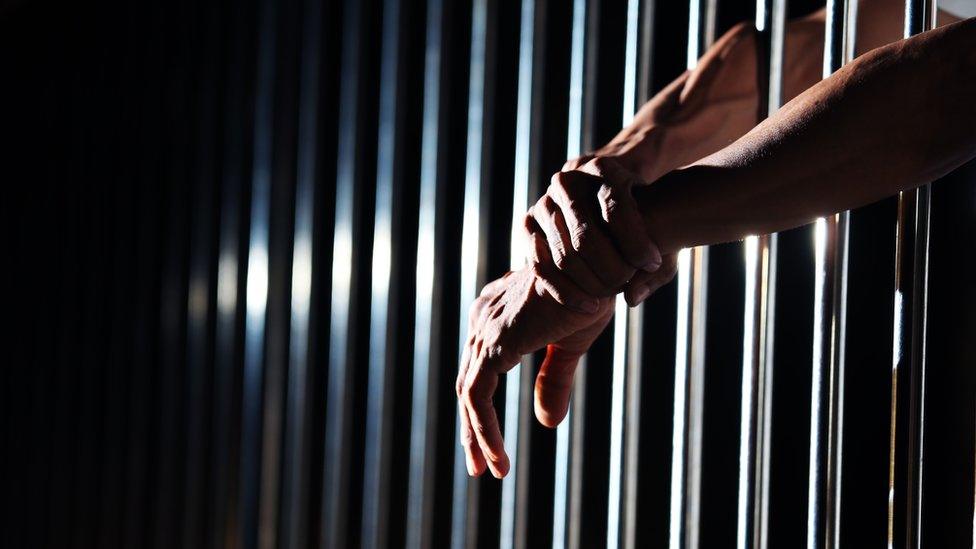
Shirley Debono says IPP prisoners cannot get on with their lives without fearing recall
Ms Debono said her son tried to kill himself in 2008.
"If he didn't have me, he wouldn't be here," she said.
"My son would be one of those statistics."
After his suicide attempt in prison, he turned to prescription opioids. This led to his addiction.
Ms Debono wants IPP prisoners resentenced.
She said: "Then the people like Shaun that committed the far less serious crimes, who should not have got the IPP sentence, can be released on a two year licence."
She and fellow campaigner Donna Mooney - whose brother took his life while in prison on an IPP sentence - were due to meet UK government justice secretary Robert Buckland in April.
That was postponed because of Covid-19 and rescheduled for September.
She urged him to "please make some changes".
In 2016 then Parole Board chairman, Prof Nick Hardwick, said IPP prisoners could be cut from 4,000 to 1,500 by 2020 without government action.
Today the figure is 2,038 - not including 1,328 who have been recalled.
'More community rehabilitation'
Solicitor Andrew Sperling has worked with IPP prisoners since 2005.
He supported the call to resentence them. He said recent figures showed recalls had more than doubled in the last five years.
"People end up being recalled to custody for being late to appointments or not contactable on a particular day," he said.
He wanted to see more community rehabilitation that provided "proper supervision and support".
A Ministry of Justice spokesman said: "These types of offenders were deemed by a judge to pose a high risk to the public and are only released after they demonstrate to the Parole Board they are no longer a threat.
"The power to recall is vital to protect the public who rightly expect the most dangerous offenders to be imprisoned."

What is an IPP?
It is a minimum sentence and the prisoner must demonstrate to a parole board that they are no longer a risk to the public before they can be released.
Introduced by the Labour government in 2005, it was designed for serious violent and sexual offenders.
Ministers thought it would affect 900 offenders in total but it was applied far more widely, and at its peak there were 6,000 IPP prisoners.
The sentence was abolished in 2012 by then Justice Secretary Ken Clarke.
He said that it was impossible for prisoners to prove that they were no longer a risk, calling IPPs a "stain" on the criminal justice system.
- Published1 December 2019
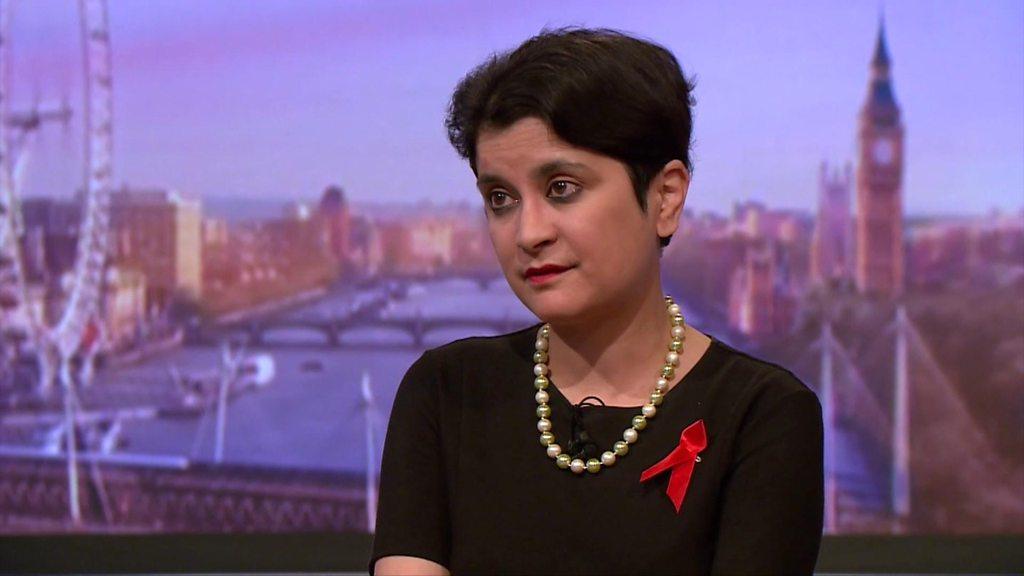
- Published3 March 2020
